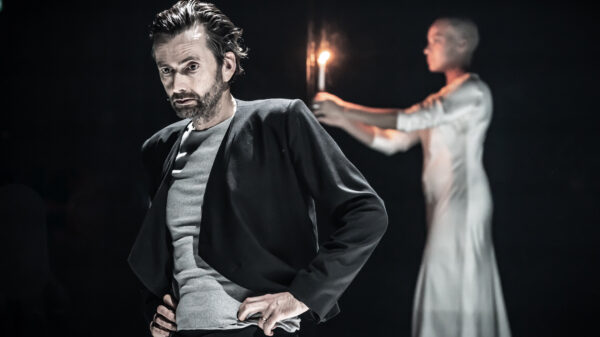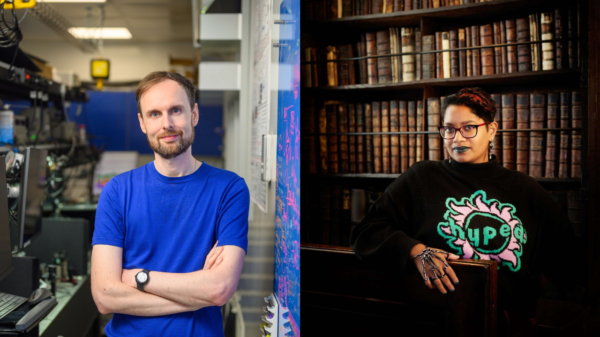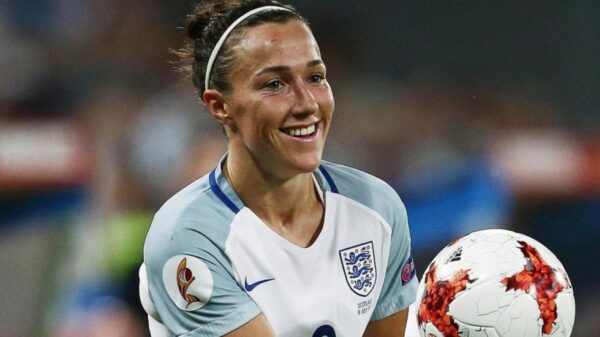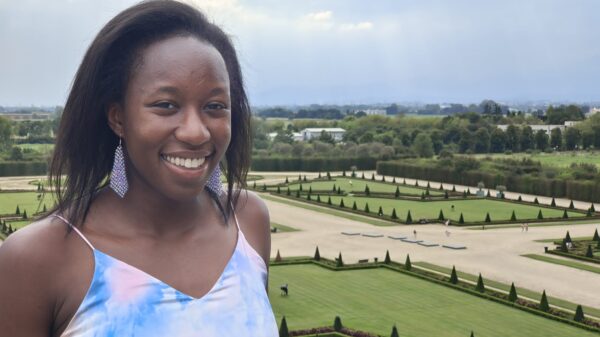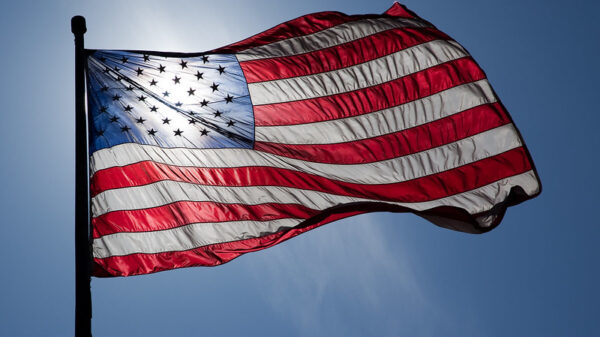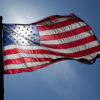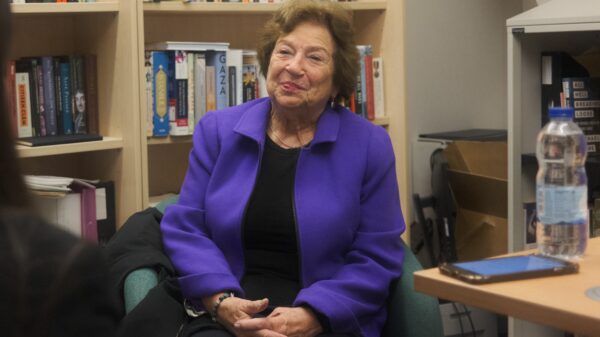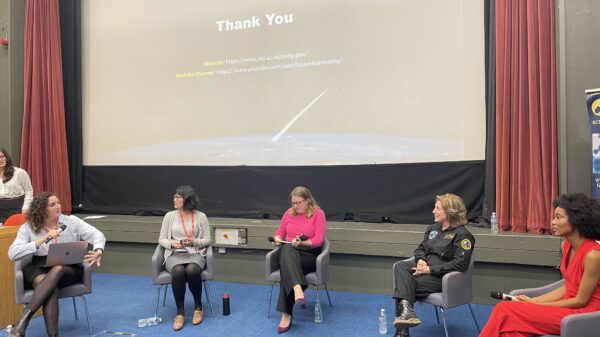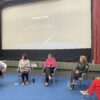Comment Editor Ben Evans sat down with the NATO Assistant Secretary General, David Cattler before he spoke at a behind closed doors event at King’s. They covered the health and future of the alliance, the present situation in the Russia-Ukraine War, counter-terror and the other threats faced by NATO today.
This interview was carried out on 5 October, before the Israel-Hamas conflict began.
Last week, KCL welcomed David Cattler as part of an event in collaboration with the Axson Johnson Institute for Statecraft and Diplomacy and the Centre for Grand Strategy based at King’s College London. Cattler has served as NATO’s Assistant Secretary-General for Intelligence and Security since December 2019 and is coming to the end of his four year term. His term has been defined by the Russia-Ukraine War which has seen a rejuvenation of the alliance, the accession of a new member, in Finland (with Sweden expected to formally join soon) and a monumental shift back towards a focus on military spending and defence. Prior to his role, David worked in the Office of the Director of National Intelligence, originally with a focus on the Near East. He has additionally worked for the White House during President Trump’s transition to power and he has held many other high-ranking roles in security, intelligence and counter-terrorism.
A look back at recent history
We began the interview with a look back at David’s experience. I asked David to recall his work as National Intelligence Manager for the Near East and questioned him about the differences between “tackling a non-state actor, such as ISIS” when compared to “state actors” such as Russia.
He initially distinguished that “a lot of the counter-ISIS fight was counter-terrorism”. Cattler went on a small tangent, stating his beliefs of Russia’s intentions, which for him looked like “counter-insurgency” but “in support of the Assad regime”. Russia was involved in the Syrian conflict: its official position was counter-terrorism against Islamic State (IS), but it is widely believed their true intentions were to suppress the Western-backed rebels and sure up Bashir Al-Assad’s dictatorship. Notably, Syria was one of five nations not to condemn Russia’s war on Ukraine. Russia’s actions were described as a ‘crime against humanity’, especially in their bombing of the ancient city of Aleppo.
The predominant difference between dealing with threats such as Russia and those that IS posed is the nuclear deterrent. This means more “constraints and restraint” in dealing with Russia, with policymakers, like himself, “worried about escalation” and “miscalculation”. Cattler stressed that Russia has the largest nuclear arsenal in the world so it’s in no one’s interest to have a “direct conventional conflict between two major state actors”. He wouldn’t give a direct comparison, however when dealing with “a location where there’s little to no government”, saying that “there are just a different set of considerations”. Cattler did stress the US weren’t “free” in Syria, with international law and a civilian population still paramount concerns but clearly, the West was more able to provide direct support.
A Health Assessment of NATO’s Family of 31
The conversation moved towards the present day of the NATO alliance and the health of the organisation. I asked Cattler “is NATO truly as unified as we are led to believe?”: with the context of Türkiye’s block on Swedish ascension and the recent re-election of Pro-Russian PM, Robert Fico, in Slovakia challenging the narrative of unity within the bloc.
In an acknowledgement of recent criticisms of the alliance he accompanied his determined “yeah I think so” with “and I don’t want to sound naïve in that”. Cattler rapidly drew a distinction between “domestic politics and alliance politics”. He went further, saying that despite the “range of views” within the alliance it has a track record of “complete solidarity”. He drew a parallel with his own childhood, being one of four siblings. They used to bicker and not agree all the time but ultimately they loved each other. He took this analogy to NATO’s current “family of 31 siblings” who “share the same values”. The need for unanimous consensus forces them to bicker and argue but when they settle “the power of movement” can have a great “effect on deterrence and defence”.
This prompted me to enquire further on the differences between domestic and foreign policy. As someone who has witnessed governments rise and subsequently fall, I asked him if foreign policy remains relatively constant, especially in regard to NATO.
His answer was two-fold. He started with explaining that in recent years, NATO has been criticised. Cattler drew on the London summit of 2019; he recalled discussions of the alliance being “brain dead” and debates around whether “it was still necessary”. That conference saw President Macron, criticise the timeliness of the NATO command structure and openly argue with President Trump regarding the role of the alliance. He used this low point and juxtaposed it to the feeling today, in which people have been reminded that NATO is “one of the most powerful alliances in the history of mankind”. He continued to explain that the ”aggregate” effect of a 31-member strong alliance, has provided a “constancy” with a “common perspective” on many issues. To further this point, whilst talking at an American Politics Society event this week, Dr Benjamin Jones stated that when looking at the rhetoric and narratives towards NATO as far back as the 1960s the same attitudes permeated back then as they do now. NATO was widely recognised as vital to European security, but European nations clambered for further autonomy just as the likes of Macron do now.
A look towards the future
As David said, NATO is “one of the most powerful alliances in the history of mankind”. For context, it was formed in 1949 to bring together the democratic nations of Western Europe in unity against their common threat of Communist expansion in the East. The alliance began with only 12 members, by Spain’s accession in 1982 it had 16 and now it has grown to 31. It was after the fall of the Berlin Wall that a gradual Eastward expansion commenced. Since then, NATO has gained 15 additional members between then and now with Sweden expected to formally join soon. This expansion, even without an immediate threat in the 1990s and 2000s was phenomenal. With President Biden claiming the alliance is “vital for our shared future” and taking into account its past constancy over the last 75 years, I asked if David could “ever see a world in which NATO is not needed?”
“I don’t think so, now I’m a little biased as I’ve worked for NATO for the last four years” he jokingly replied. He reiterated the power of NATO’s “consensus-driven action” and listed the shared values of “democracy”, “human rights”, “sovereignty” and “territorial integrity” as keys to unity. He then flipped the question back, provoking a thought experiment of a world without NATO and why we would need it today. “No country would fight a war really without allies”, but to reach the “political agreement they reached in the late ‘40s” would be far more difficult today and potentially unworkable. In other terms, if we ever got rid of NATO and needed it again, it would be far harder to re-establish.
The Sustainability of Support for Ukraine
On the topic of NATO’s importance nowadays, I shifted the conversation to the war in Ukraine and the military support alliance nations have been providing in order to combat Russia. Attempting to assess the sustainability of Western support I asked if “NATO has spread itself too thin” and if there are any weapons in reserve “for other threats”.
Acknowledging that precise details couldn’t be shared for a question of this nature, Cattler claimed the war is “at a critical point” and stated, “it really is important that we do everything we can to help Ukraine and also frankly do it a little bit faster”. He claimed the conflict is a “humanitarian tragedy” and an “illegal war”, that must be stopped to preserve human life. “It could be stopped quite quickly if Putin were to simply call it off” – if only.
Cattler began to reflect on “one of the big lessons of this war”. He strongly stated that “there is no silver bullet, there is no technological solution that is going to get you out of a lot of the old ways of war sadly. I think it’s better we learn that lesson now, than be confronted with a huge military challenge in the future and realise our stocks are insufficient”.
A Shift in the Psyche
To further this topic, I proposed the post-Cold War consensus “that nations that openly trade together don’t go to war”. This psyche led to defence budgets shrinking and money being funnelled into public services and to enhance their trade. I asked if he agreed with that and if he believes there has been a shift back to the importance of “physical defence”.
He listed the nations of Germany, Lithuania and Poland that have increased their defence spending. He acknowledged Francis Fukuyama’s The End of History, which epitomised the strongly held belief of the 1990s that after the Cold War, Western liberal democracy would spread across the globe creating peace and prosperity for all. Cattler said “it didn’t quite work out that way”, but did praise Fukuyama’s research. It was “demonstrably not the correct way of thinking”. However, he did agree that “globalisation is still a good thing” in promoting “dialogue” and reminding us that despite differing backgrounds and ideologies it “doesn’t mean we have to go to war”.
Ultimately, from David’s perspective, the rise of revisionist and revanchist powers has been the greatest challenge to rules-based international order. He furthered this by mimicking the likes of Putin; “I want the Soviet Union, I want an empire, I want a complete re-write of the international rules-based order”. Cattler clearly fears their opposition to conventions such as the UN Charter and other international treaties. For him, this has changed the world and now sadly “you have to have a reasonably credible deterrence” to stave off these threats.
A Resurgent Russia and a Sino “Strategic Challenge”
Regarding these threats, I asked him what (or who) he believed the largest threat to NATO is today, excluding Russia.
He referenced the new strategic concept derived from the Madrid Conference last year. That outlined the ten-year vision for the alliance with two equal threats: “Russia as the state adversary and terrorism, the non-state actor”. As for the elephant in the room? Cattler was keen to stress that “China’s rise represents a systemic challenge to the international rules-based order”, stating their opaque military modernisation and their lack of cooperation in arms control talks as examples of this. “We’ve not characterised them as a threat”, he later clarified demonstrating the delicacy involved in the language of diplomacy. It will be interesting to see how this “systemic challenge” manifests itself over the decade to come.
David Cattler struck me as someone committed to the NATO cause and a true believer that we are stronger as a collective than we are isolated. As for his favourite part of his job? The “opportunity to be a leader in this organisation in this critical time”. The mass events during his tenure have truly shocked the alliance but for David, he has relished the chance to work with the very best in their field. For him, the alliance is happy, healthy and kicking. This rhetoric will anger those in the Kremlin, but as time moves forward, economic crises bed in and the war in Ukraine rages on; the NATO family of 31 (with another on the way) will be tested in its resolute and stead-fast unity. More family traumas are certain, but for now, the household remains safe from the big bad wolf intent on blowing it down.
Roar would like to thank David for his time and insightful answers and wish him the best of luck in the next stage of his career.


